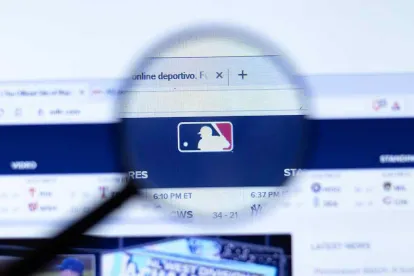Major League Baseball (MLB) exercised its legal right and remedy guaranteed pursuant to current federal labor laws when it commenced a lockout of its players shortly after the five-year collective bargaining agreement (CBA) between MLB and the Major League Baseball Players Association expired at midnight on December 2.
This marks the first work stoppage in MLB since 1994-95. In a letter announcing the lockout, Commissioner Rob Manfred said,
“We are taking this step now because it accelerates the urgency for an agreement with as much runway as possible to avoid doing damage to the 2022 season.”
Without a new agreement, all activity between MLB Owners and players and transactions between players on the 40-man roster (union members) must cease. All communications between the union member players and the major league clubs will end until a new collective bargaining agreement is reached between the parties.
While the lockout prevents players from accessing team facilities — being physically “locked out” — it will also freeze all offseason business. Teams will not be able to negotiate with free agents or engage in trades with each other. The annual Winter Meetings were cancelled shortly after the lockout began.
Typical off-season roster deadlines are already being affected as the annual Rule 5 draft, continuously held since 1920—even through past labor disputes—has already been postponed indefinitely
(though the minor league portion, which does not involve MLBPA union members, will proceed as scheduled). Player arbitration, scheduled to be held in February, may also be in jeopardy. The lockout, if it continues, also may affect Spring Training, with exhibition games currently scheduled to begin February 26, 2022. In November, Commissioner Manfred distinguished an offseason lockout from “a labor dispute that costs games.” He also said a lockout “moves the process forward” during the offseason.
Historically, whether initiated by employers or employees, work stoppages have been employed as a useful tool in labor negotiations. Through legally protected work stoppages, either management or labor can attempt to leverage their position — employees denying employers the benefit of their work and employers denying employees the opportunity to work. MLB offseason lockouts have also effectively preempted player strikes in the past and lowered the possibility of affecting the regular season and the potential cancellation of any games during the 162 game regular season. MLB’s three previous lockouts were resolved without the loss of regular season games. Comparatively, MLB’s five previous strikes resulted in the loss of 1,720 games, including 921 games and the 1994 post-season during the 1994-95 strike.
MLB is not the only sport to use work stoppages in negotiating labor disputes. The National Basketball Association has had to shorten seasons due to lockouts, most recently in 2011. The National Football League used replacement players to avoid losing games during the 1987 strike and ended a lockout in 2011 just before the start of the regular season. The National Hockey League lost the entire 2004-05 season due to a lockout and, most recently, had to shorten its season after a lockout to begin the 2012-13 season.
Lockouts are not only used in sports. For example, in 2016, Long Island University locked out faculty members for 12 days after the union contract expired in an effort to break the union’s routine of striking during five of the previous six labor negotiations.
Lockouts are not without risk, in particular work stoppages can negatively impact consumers/fans and public opinion of the business. “I don’t think ’94 worked out too great for anybody,” Commissioner Manfred said, “That’s what it’s about. It’s avoiding doing damage to the season.”
Despite the historical use of both legal remedies by labor and management,
the Build Back Better Act, pushed forward by President Joe Biden and recently passed by the House of Representatives, seeks to tip the scales in organized labor’s direction as the law would effectively ban management’s ability to permanently replace economic strikers or use lockouts.
Of specific interest, the Act contains no corresponding restriction on a union’s strike counterpart. Jackson Lewis’ Labor Relations Practice Group has discussed the Act’s impact on established employer labor practices.





 />i
/>i

